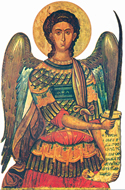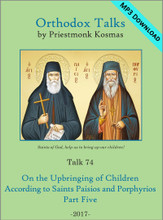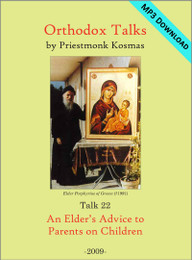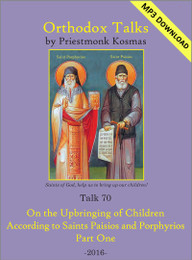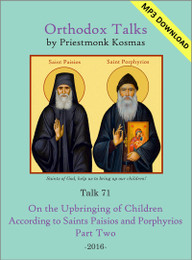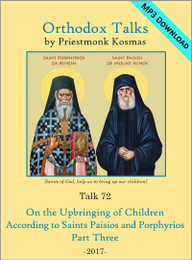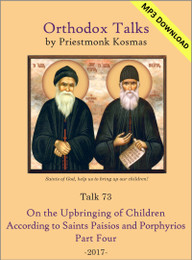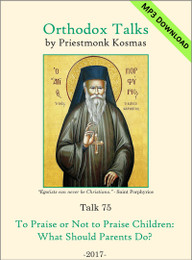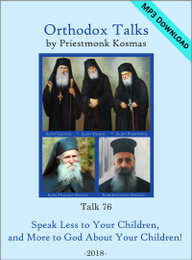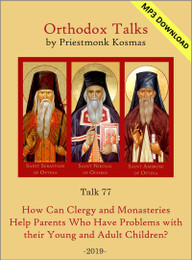 Loading... Please wait...
Loading... Please wait...Search our Talks
MP3 Downloads
Update on New Talks
(MP3 duration: 3hrs 47mins)
Considerable information is available today on raising children and on various parenting styles, leaving many Orthodox Christians confused as to which style to use when parenting their children. Some of this information is correct, but how are Orthodox parents to know what to accept or reject? There is a lot of Orthodox literature on monasticism and very little on the upbringing of children. What literature exists often does not cover many of the contemporary issues facing parents. For this reason it is important for parents to read the writings of the saints and elders that have lived in our times.
In this talk Father Kosmas uses the teachings of the contemporary elders Saints Paisios and Porphyrios to explain how parents who are over-protective, over-bearing or who pressure their children are actually traumatizing them. This abuse is so harmful that, according to the saints, it affects the emotional, psychological, physical and spiritual development of the children. Father Kosmas also shows that even the limited findings of psychologists and doctors agree with the simple but enlightened teachings of these saints.
The following questions are also discussed: what are parents to do when their children are disobedient? What did Saint Porphyrios say causes children to become lethargic, weak-willed and generally unsuccessful in life? How much freedom should children have? How does unstructured play and discovering the world help children develop? What did Saint Paisios mean when he advised mothers not to pressure their children but to pressure themselves when dealing with their children’s problems?
Other points covered in this talk include: the effects on children when their parents constantly want to do things for them; how hovering over children can suffocate them; the consequences of nagging parents; how religious parents often force their children in spiritual matters, causing them to leave the Church; and how parents who try to fix their children’s problems themselves end up doing more harm than good.

